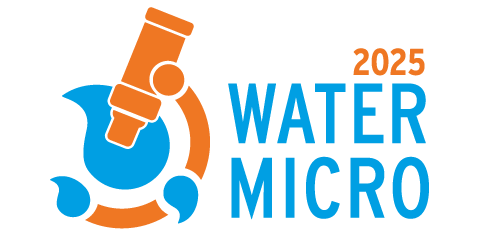Fri 20 June Morning session
Priority waterborne pathogens
WHO has recently published pathogen background documents for the WHO Guidelines for drinking-water quality and Sanitation and health guidelines. This series of publications is the key input for the forthcoming update to the Guidelines for drinking-water quality. This update will be launched at Watermicro2025 during this session.
In addition, to support communication around the series and the updated WHO Guidelines, WHO is preparing a fact sheet that highlights priority drinking-water and sanitation pathogens, including proposing a “top 10”. In this session, the updated Guidelines and criteria that informed the selection of the top 10 pathogens will be presented. The focus of the session will be to discuss research priorities on drinking-water and sanitation-related pathogens with the view to identify priority research areas. It is hoped the session outputs will inform development of a journal paper that includes a research agenda on WASH pathogens.
Fri 21 June Afternoon session
Evidence needs for updating the WHO guidelines on safe use of excreta, wastewater, and greywater in agriculture.
A large amount of wastewater is generated globally each year, but only a small portion is treated, and an even smaller fraction is safely reused. With growing water scarcity driven by climate change, wastewater is increasingly seen as a valuable resource for agriculture, especially in areas near cities. However, much of its reuse is informal and unsafe, contributing to the spread of disease, water pollution, and loss of economic opportunities. The current low formal utilization of wastewater, especially in Africa and Asia, presents an untapped opportunity to enhance food and water security through safe reuse. As global development shifts toward circular economies, wastewater reuse must be aligned with safety standards to avoid undermining public and environmental health. Since the 1970s, the UN system, led by WHO, FAO, and UNEP, has issued landmark guidelines on safe use of wastewater in agriculture. These have influenced national and regional policies, but no comprehensive update has been made since 2006. This workshop aims to discuss and identify key evidence gaps and needs to inform a scoping phase for updating the 2006 WHO guidelines on safe use of excreta, wastewater, and greywater in agriculture.
